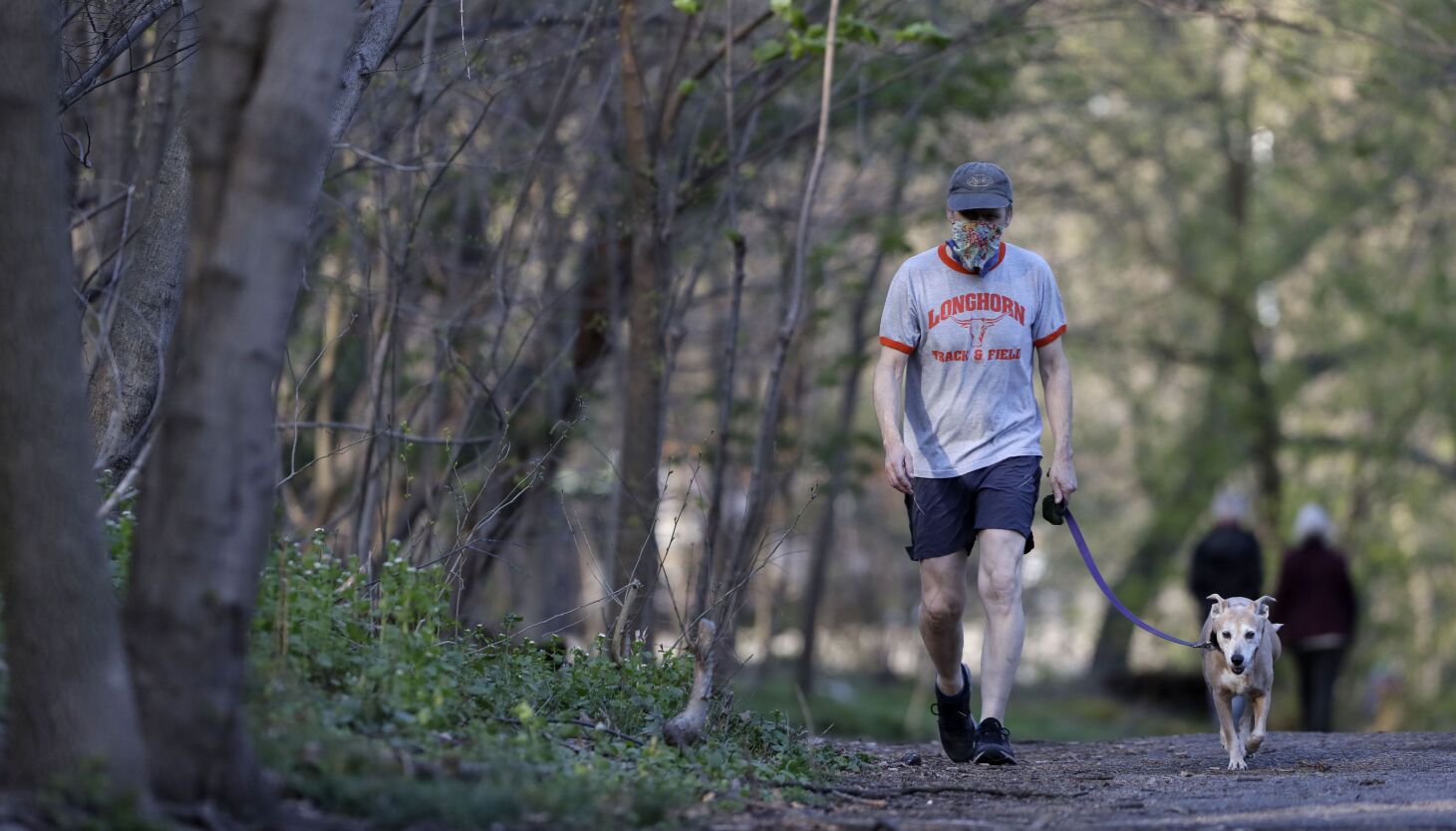- November 23, 2022
- No Comment
- 6 minutes read
Physical activity lowers dementia risk in people and their dogs – Deseret News

Christopher Longworth takes a solitary walk with his dog Ida Mae through the woods in Brooklyn’s Prospect Park, Tuesday, April 14, 2020, during the coronavirus pandemic in New York. A walk has health benefits fro the person as well as the dog, studies show.
Mark Lennihan, Associated Press
Recent studies have found that a physically active lifestyle decreases the risk of dementia in humans and their pets.
One of the studies monitored the daily steps of 78,430 adults in the U.K. The other tracked the daily activities of 15,019 pet dogs. Both sets of data found that participating in daily activity, particularly walks, combats aging minds in humans and their pets.
Dogs are not safe from the threat of dementia. A 2019 study, published in the journal Veterinary Clinics of North America: Small Animal Practice, found that 19% to 35% of older pet dogs will develop doggy dementia or canine cognitive disfunction. The signs and symptoms of doggy dementia is the same as in humans.
“Getting lost is one of the most common symptoms” of canine cognitive dysfunction, said Matt Kaeberlein, a professor at the University of Washington in Seattle, co-director of the Dog Aging Project, and co-author of the dementia study, per The Washington Post.
Dogs suffering dementia are prone to getting lost in their own homes, staring blankly at a wall, not responding to simple commands, disrupted sleep patterns, withdrawing and losing a formerly social personality, the study said. Dogs with a history of neurological, ear or eye disorders are at a higher risk of dementia.
The Dog Aging Project started a study in 2018 to investigate the link between cognitive decline and pet activity.
Thousands of dog owners volunteered to participate in the study. Participating pet owners were asked to fill out an extensive survey that asked questions about their dogs’ lives, such as health and dementia symptoms.
Researchers had a broad range of dogs in the study — old and young of many different breeds. Out of the dogs in the study, about 1.5% suffered from dementia. Out of a series of lifestyle factors (breed, gender, sterilization) only physical activity was showed an effect. Researchers found that inactive dogs were 6.5 times more likely to have dementia than highly active dogs.
The long and short of it is, taking your dog for a walk is “likely to be beneficial” for their brain, Kaeberlein said, per The Washington Post.
Dog brains aren’t the only ones that benefit from daily physical activity. A 2022 study published by the journal JAMA Neurology found that aging human brains can combat dementia risks by taking just 3,800 steps every day.
Researchers took health records from 78,340 adults ages 40 to 79 in the U.K. who were already part of BioBank, a database of health data. The volunteers provided further health data and agreed to wear an activity tracker and record daily steps.
The volunteer’s activity and health was followed by researchers for almost seven years. Researchers found that taking more steps each day was associated with a decreased risk in dementia. The risk was further combatted by more intense and purposeful walks.
“Our findings suggest that approximately 9,800 steps per day may be optimal to lower the risk of dementia. We estimated the minimum dose at approximately 3,800 steps per day, which was associated with 25% lower incident dementia,” the study reports.
Dog owners are more likely to meet daily physical activity guidelines than people without a dog, a 2019 study found.
Researchers compared physical activity between hundreds of dog owners and non-dog owners. The study found that dog owners are “considerably more active” than people without a dog.
“Without dogs, it is likely that population physical activity levels would be much lower. Dog walking is also significant for wider health as physical activity undertaken outdoors and in natural environments has the greatest mental health benefits. … Therefore our pet dogs play an important role in keeping us healthy and this should be recognised and facilitated,” the study said.
Copyright © 2022 Deseret News Publishing Company. All Rights Reserved

